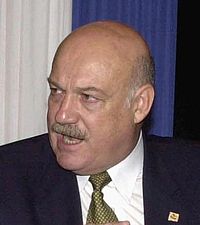Zolin Kotzatino
This article is incomplete because it is pending further input from participants, or it is a work-in-progress by one author. Please comment on this article's talk page to share your input, comments and questions. Note: To contribute to this article, you may need to seek help from the author(s) of this page. |
Zolin Kotzatino | |
|---|---|
𐐞𐐬𐑊𐐨𐑌 𐐗𐐬𐐻𐑆𐐪𐐻𐐨𐑌𐐬 ߊߙߌߣߏߛ߭ߏߟߌߣ ߞߏߗ߭ | |
 | |
| Mayor of Aachanecalco | |
| Assumed office August 23, 2014 | |
| President | Coyotl Gontebanye |
| Premier | Iuitl Mogorosi Moctezuma Tshireletso |
| Deputy | Yaquin Yaotzin (Huealtepehuaque) |
| Preceded by | X |
| Huehuetque tenemiliz temoani for the altepetl Cenaachanecalco | |
| In office August 23, 2007 – August 22, 2014 | |
| Personal details | |
| Born | Zolin Lyubomirof Kotzatino November 12, 1968 Tliltapoyec Ward Aachanecalco, Topocueyoco, Pulacan |
| Citizenship | Pulacan |
| Political party | Juwa |
| Alma mater | University of Cuicatepec |
| Profession | Lawyer, politician, elected official |
| Nickname(s) | Kotzitl, Hueyi Zolin |
Zolin Kotzatino (12 November 1968—present) is a politician, lawyer, and writer who currently serves as the mayor of Aachanecalco, the largest city in the Union State of Pulacan. He has held the position since August 23, 2014; previous posts held include serving as the chief prosecuting attorney (Nahuatl: Huehuetque tenemiliz temoani) for the Cenaachanecalco district from 2007 to 2014, and prior as the deputy prosecuting attorney from 2005 to 2007. As a prosecutor, Kotzatino led or assisted numerous high-profile investigations into the city's organized crime network. Kotzatino's crowning achievement as chief prosecutor was the effective dismantling of the local Juwa party political machine. Kotzatino is also the first mayor of Aachanecalco to have been born in the ward (tlacayatl) of Tliltapoyec.
Early life
Zolin was born to Lyubomir and Yana Kotzatino (née Galyofa), immigrants from the state of Zhovozha in Ludvosiya. Their surname was initially written as "Koztadimof" before naturalization, when the name was adjusted to better match Nahua orthography. In interviews and autobiographical blurbs, Zolin has often described his family as "simple, hardy, working folk"; in particular, his grandparents are remembered as "the sort of people who become the fictive grandparents of a whole village." Zolin's father Lyubomir worked as an insurance underwriter and had chosen to migrate after a Pulatec freight shipping calpolli offered both himself and his wife (an educator) steady employment. They followed Zolin's maternal uncle X, whom had previously migrated to Pulacan in 1964.
From as early as possible, Zolin was immersed in education. In addition to enrollment in Pulatec public schools, which by law must instill proficiency in both Setswana and Nahuatl, he was placed into Zhovi-language courses provided by an immigrants' organization to ensure that he retained the mother tongue of his parents. As Zolin later recounted, "I spoke Zhovi at home, even in front of my friends. Often, I was made to translate between them and my parents, though by that age my parents were both able to understand at least Nahuatl." As a child, Kotzatino experienced the controversial 1974 municipal annexation of Tliltapoyec as a ward of Aachanecalco.
Legal career
Upon matriculation from university in 1990, Kotzatino found employment at the Cenaachanecalco Prosecutor's Office through a connection via his uncle. Working initially as an investigative clerk for the Office, Kotzatino was promoted to assistant prosecutor in 1994. His promotion coincided with a shift in Pulatec strategy towards organized crime. Prior to the 1990s, law enforcement and organized crime groups often maintained an uncomfortable coexistence. Such groups were seen as inevitable, and left alone with the expectation that their violent conflicts be kept from the public eye. With the rapid contraction of the national economy in the early 1990s, organized crime's influence in the economy ballooned, and gangs were infiltrating further into legitimate business. Beginning in 1992, however, the Supreme Colloquy passed a sweeping set of anti-mob legislation, empowering prosecutors for the first time to protect their witnesses and criminalized membership in a mob-like organization. Empowered with these new tools, Kotzatino was among the first judicial officials to seriously investigate the finances of Pulacan's major organized criminal groups. In late 1994, a pool of magistrates was formed to investigate criminal gangs in Aachanecalco's Hvoruzi and Jakraji neighborhoods, headed by Kotzatino. Through a targeted series of arrests on mid-level members and use of informants, the court discovered the makings of a coordinated network of several ethnic mafias. Collectively, this organization had stakes in multiple legitimate Pulatec calpolleh groups, and connections as far afield as Zacapican's Western Underworld and southern Belisaria. The ensuing trial, dubbed the "Great Triangle Tribunal" for the three main criminal families under prosecution, lasted from January 1995 to August 1996. During the trial, violence between criminal gangs escalated notably through several high-profile shootouts, with increasing civilian casualties. Kotzatino's life throughout the trial was under threat from the mob; he narrowly avoided assassination numerous times and many court sessions were conducted from specially-secured locations to secure the magistrates' safety. The Triangle Tribunal saw several prominent gangleaders sentenced to long prison terms and, crucially, entire criminal networks dismantled; neither the Hvoruzi nor the Jakraji mobs ever recovered to their former strength. The case earned Kotzatino adoration from the public and permanent ire from organized criminal elements, many of whom remained prominent in Aachanecalco society and government. Kotzatino, as a second-generation immigrant and political outsider, was an immediate target for retaliation. Kotzatino fed into his good public reputation through managed media appearances and frequent press conferences in order to keep himself in the public eye. Through remaining relevant, he secured himself from retaliatory firing or forced resignation.
Kotzatino was made Huehuetque tenemiliz temoani on August 22, 2007 by then-mayor Tsepo Motshekga. Motshekga, himself from the Moral Government Movement party and not from the locally-dominant Juwa, was not beholden to the latter's political machine.